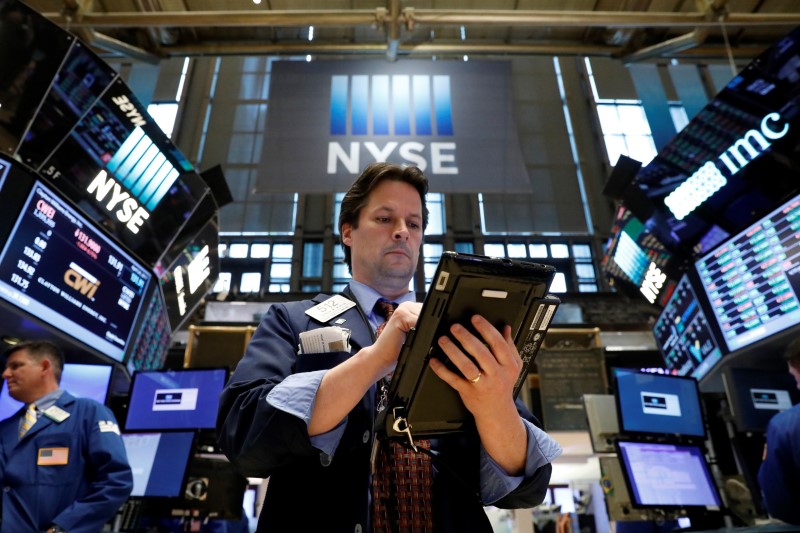By Chuck Mikolajczak
NEW YORK (Reuters) - Equities retreated from highs on Wednesday after a U.S. tax plan disappointed, while the Canadian dollar and Mexican peso weakened against the greenback on the possibility of a U.S. withdrawal from the North American Free Trade Agreement.
Wall Street gave up gains after U.S. President Donald Trump proposed slashing tax rates for businesses and on overseas corporate profits returned to the country in a long-awaited plan greeted as an opening maneuver by his fellow Republicans in Congress.
The plan would cut the income tax rate paid by public corporations to 15 percent from 35 and reduce the top tax rate assessed on pass-through businesses, including small partnerships and sole proprietorships, to 15 percent from 39.6.
"The key question really is what is doable from a budgetary and political perspective in Congress and this is going to be a bit of an uphill fight to get this plan enacted into law," said David Lefkowitz, senior equity strategist at UBS Wealth Management Americas in New York.
"At the end of the day, earnings for any particular company are going to be the biggest driver."
Thermo Fisher Electron (N:TMO), up 5.8 percent, was the top boost to the benchmark S&P index while Dow component United Technologies (N:UTX) gained 1.1 percent after results.
The U.S. dollar retreated from highs against major rivals in the wake of the tax plan but strengthened against both the Mexican peso and Canadian dollar after a senior Trump administration official said a draft executive order to withdraw the United States from the North American Free Trade Agreement is under consideration.
The Dow Jones Industrial Average (DJI) fell 21.03 points, or 0.1 percent, to end at 20,975.09, the S&P 500 (SPX) lost 1.16 points, or 0.05 percent, to 2,387.45 and the Nasdaq Composite (IXIC) dropped 0.27 point to 6,025.23.
The Mexican peso
The main Mexican and Canadian share indexes (GSPTSE) (MXX) both fell more than half a percent.
European shares are at 20-month highs after a three-day rally sparked by centrist Emmanuel Macron's win in the first round of French presidential elections, which considerably lessened the risk of a French exit from the euro zone. Higher-than-expected earnings have also supported gains.
The pan-European FTSEurofirst 300 index (FTEU3) rose 0.4 percent, after touching its highest level since August 2015. MSCI's gauge of stocks across the globe (MIWD00000PUS) gained 0.07 percent after hitting a high of 457.45 to set a record for a third straight session.
Overall, first-quarter earnings for STOXX 600 companies were expected to rise 5.5 percent, according to Thomson Reuters data. In comparison, S&P 500 companies in the U.S. are expected to show 11.8 percent earnings growth expected for the quarter.
The euro
U.S. Treasury prices rose after the tax announcement, reversing steep losses sustained in the last few sessions. Benchmark 10-year notes (US10YT=RR) last rose 7/32 in price to yield 2.304 percent, from 2.329 percent late on Tuesday.
Investors were also looking ahead to Thursday's policy meeting of the European Central Bank.

While no changes are expected, policymakers see scope for sending a small signal in June towards reducing monetary stimulus, according to sources, another factor underpinning the single currency.